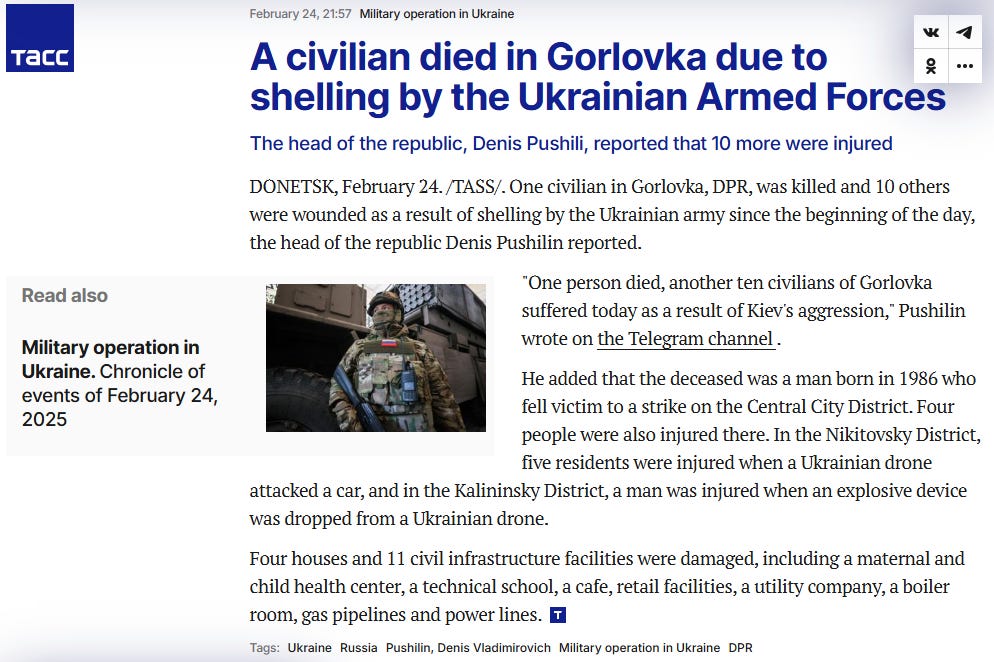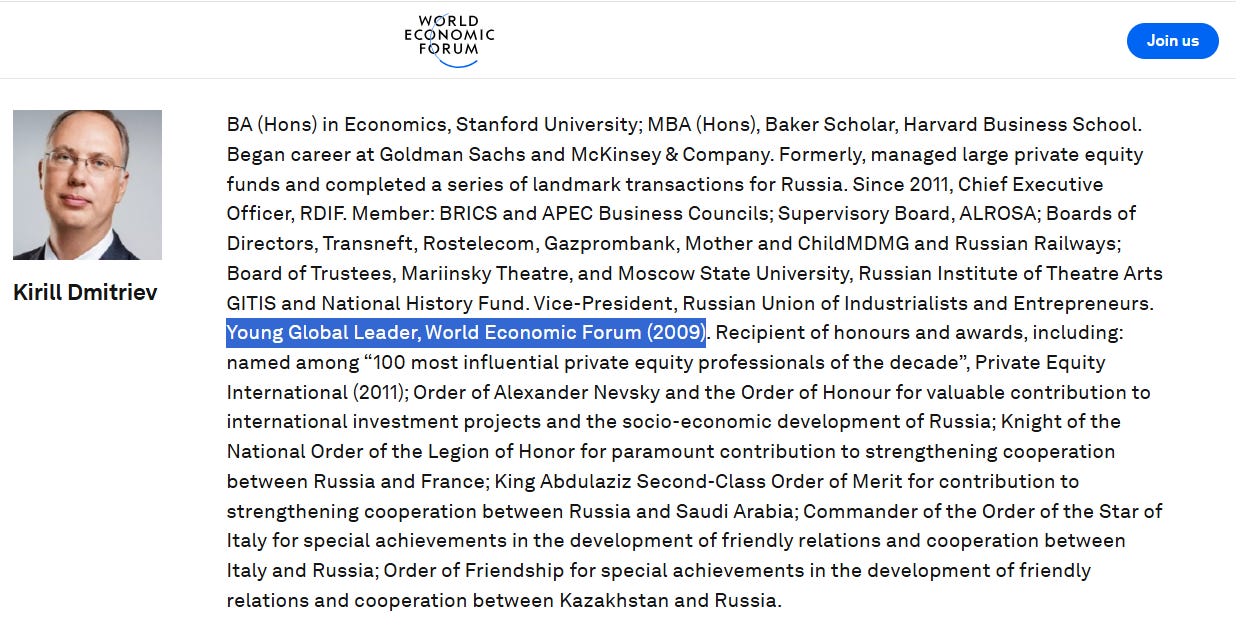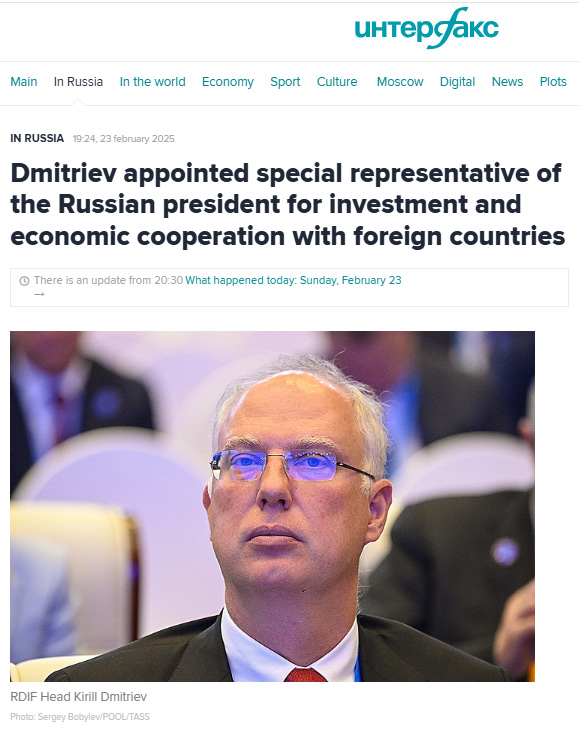By Riley Waggaman, Substack, 2/26/25
Riley Waggaman is an American writer and journalist who has lived in Russia for close to a decade. He has contributed to many websites, including Anti-Empire, Russian Faith, Brownstone Institute, Unlimited Hangout, and Geopolitics & Empire. He worked for Press TV, Russia Insider, and RT before going solo.
In a fiery speech marking three years since the start of Russia’s Special Military Operation in Ukraine and Kursk, Russian President Vladimir Putin expressed hope that Moscow could “cooperate” with American companies to extract rare-earth metals in Russia and the “new territories” in East Ukraine:
[W]e would be ready to offer [cooperation] to our American partners – when I say partners, I mean not only administrative and government structures, but also companies – if they showed interest in working together.
We certainly have an order of magnitude – I want to emphasize this – an order of magnitude more resources of this kind than Ukraine. Russia is one of the undisputed leaders in reserves of these rare and rare-earth metals. We have them in in Murmansk in the North, in Kabardino-Balkaria in the Caucasus, in the Far East, in the Irkutsk region, and in Yakutia, in Tuva. These are quite capital-intensive investments, capital-intensive projects. We would be happy to work together with any foreign partners, including American ones.
Yes, by the way, regarding new territories, the same thing: we are ready to attract foreign partners, and our so-called new historical territories, which have returned to the Russian Federation, there are also certain reserves there. We are ready to work with our foreign partners, including the Americans, there.
On the same day that Putin gave his rousing speech, a civilian in one of Russia’s “new historical territories” was killed by a Ukrainian munition most likely supplied, or paid for, by Moscow’s “American partners”:

But that’s water under the bridge.
(You might be wondering how it’s possible, after three years of special military operations to “protect the people of Donbass”, that a town located less than 60 km from Donetsk is still being shelled by the Ukrainian military. You and me both, friend.)
Putin’s final warning to the Unipolar Globalists (“Would you be interested in strip-mining Donbass and Russia’s Far East, just like old times??”) came just a few days after Kirill Dmitriev, CEO of the Russian Direct Investment Fund, issued a chilling threat to US oil majors:
Dmitriev said he believed US oil majors that had “very successful business in Russia” would “at some point” return.
“Why would they forgo these opportunities that Russia gave them to have access to Russian natural resources?”
Dmitriev is taking part in ongoing negotiations with Washington and was present at the recent powwow in Riyadh.
For those unfamiliar with Mr. Dmitriev, here’s his bio—compliments of the World Economic Forum’s website:
BA (Hons) in Economics, Stanford University; MBA (Hons), Baker Scholar, Harvard Business School. Began career at Goldman Sachs and McKinsey & Company. Formerly, managed large private equity funds and completed a series of landmark transactions for Russia. Since 2011, Chief Executive Officer, RDIF. Member: BRICS and APEC Business Councils; Supervisory Board, ALROSA; Boards of Directors, Transneft, Rostelecom, Gazprombank, Mother and ChildMDMG and Russian Railways; Board of Trustees, Mariinsky Theatre, and Moscow State University, Russian Institute of Theatre Arts GITIS and National History Fund. Vice-President, Russian Union of Industrialists and Entrepreneurs. Young Global Leader, World Economic Forum (2009). Recipient of honours and awards, including: named among “100 most influential private equity professionals of the decade”, Private Equity International (2011); Order of Alexander Nevsky and the Order of Honour for valuable contribution to international investment projects and the socio-economic development of Russia; Knight of the National Order of the Legion of Honor for paramount contribution to strengthening cooperation between Russia and France; King Abdulaziz Second-Class Order of Merit for contribution to strengthening cooperation between Russia and Saudi Arabia; Commander of the Order of the Star of Italy for special achievements in the development of friendly relations and cooperation between Italy and Russia; Order of Friendship for special achievements in the development of friendly relations and cooperation between Kazakhstan and Russia.
Stanford, Harvard, Goldman Sachs, McKinsey & Company, and then groomed by Schwab before returning to Russia to promote “international investment projects”. The kind of Multipolar Freedom Fighter that the Globalists fear most.

(Coincidentally, Dmitriev was instrumental in financing and promoting Russia’s most famous clot-shot, Sputnik V.)
Apparently Dmitriev has been doing exemplary work, because on February 23 Putin appointed him “special representative of the Russian president for investment and economic cooperation with foreign countries”.

Three years of slaughter. For business as usual.
Everything went according to plan?